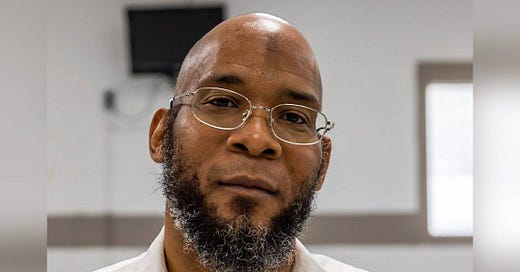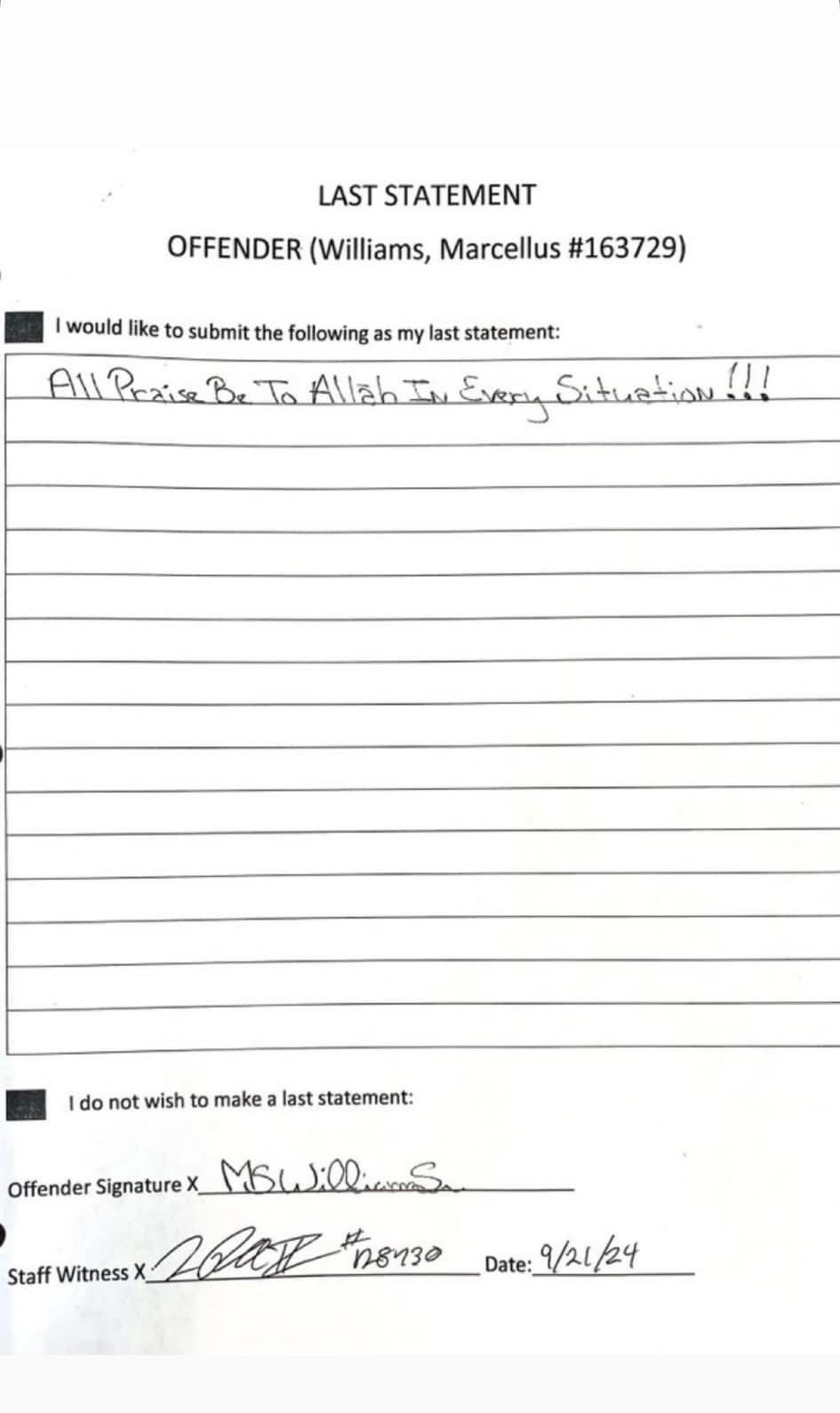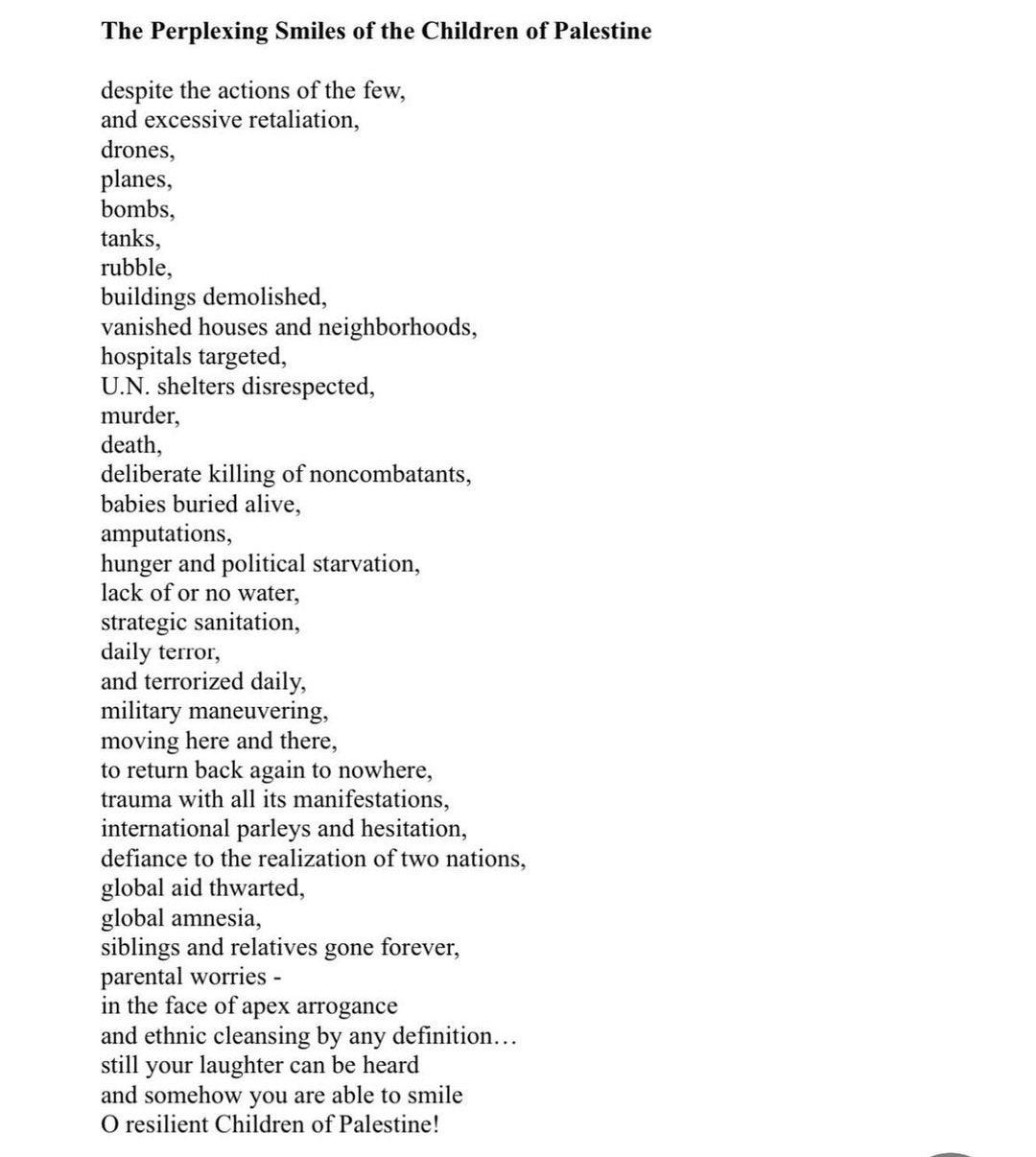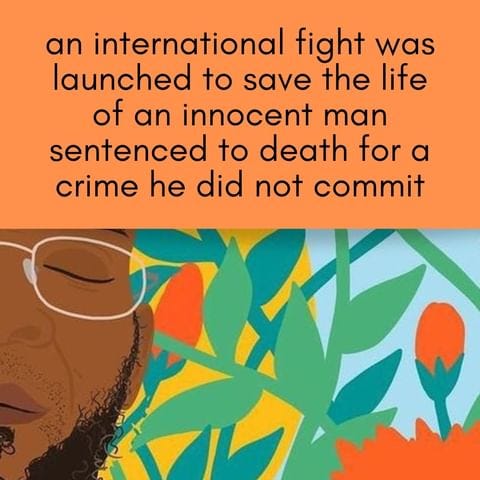For nearly a year now, whenever I close my eyes I see bloodied Palestinian children covered in dust that used to be concrete. Now, my mind’s eye brings me a new vision. The bright, beautiful face of Marcellus Khalifa Williams, a Black Muslim man who was executed several days ago by the State of Missouri for a crime he did not commit1.
In the aftermath of his killing, my feed was flooded with pictures of his poetry, written for the children of Palestine, and his last words, a testimony.
All it takes to become a Muslim is the utterance of a simple statement, a testimony called the shahada.
Ash-hadu anla illaha illa Allah, wa ash-hadu anna Muhammadan rasool Allah.
I bear witness that there is no god but God, and that Muhammad is the messenger of God.
I’ve sat in the mosque a hundred times and heard these words spoken as new Muslims are welcomed into the fold. I’ve heard them in the call to prayer before salah.
I utter them myself during the prayer, a reminder of what I believe and what I declare. God is One. His prophet, Muhammad, is my guide for His teachings.
Would I have put my hopes in God, or in my executors?
All of this to prepare me for the time that these words will matter most. At death.
My biggest fear is that I will be on my deathbed and not manage the shahada. That I will forget the words. That my carelessness in life, my lack of attention, my insufficient faith, will show in what doesn’t come out of my mouth.
In the moments before death, we are reduced to our very core, and what if the testimony isn’t at my core? What if my core is empty?
In Arabic, the shahada is so called because it’s a statement from a witness. I imagine a court, but not the broken courts of our broken criminal justice systems. Not the courts in which America can kill its own Black citizens, nor the ones in which it can veto any statements for the end of occupation, the end of genocide, the end of one massacre after another, after another.
In Arabic, a witness is called a shaheed. This is the same word for martyr2.
Marcellus Williams, who wrote poetry for the children of Palestine, is a shaheed, much like the children of Palestine.
Marcellus Williams, in his moments before death, was not reduced, but elevated to his core, a core that was content. A core that praised God and knew it was going home, to God.
Our faith teachers have written volumes about diseases of the heart. About envy. Covetousness. Greed.
In Islam, the original sin, the one that cast the devil out of heaven, is arrogance. The cure to arrogance is humility. The cure to envy and covetousness is contentment.
This is why you will hear the mothers of murdered children in Gaza say, Alhamdulillah between their tears. Alhamdulillah alaa kol haal. All praise be to God in every situation. The same words Marcellus wrote for his final statement.
They mean, I’m hurting, but I still trust you, God. They mean, I’m hurting but you are still worthy of my contentment. You are always worthy. They are the words of a true believer.
I imagine myself in his place, asked for a final statement. I imagine my denial, my refusal. I would have written an essay on my innocence. Would I have put my hopes in God, or in my executors?
In our tradition, when someone dies, we say inna lillahi wa inna ilayhi raji’oon. To God we belong and to him we return.
Marcellus knew this. We do not belong to the executors. We belong to God.
If you haven’t already, you can read the details of the ways that the criminal justice system failed Marcellus’ specific case below. Click through the carousel to read.
Marcellus from an earlier interview. Such conviction.
The always eloquent Hanif Abdurraqib on Marcellus and the concept of “innocence”. Click through the carousel to read.
Marcellus’ poem for the children of Palestine.
It turns out that it’s not only in the Islamic tradition that the word for martyr means witness. Apparently, martyr originally meant witness and was used this way in the New Testament as well. https://en.wikipedia.org/wiki/Martyr#:~:text=In%20its%20original%20meaning%2C%20the,New%20Testament%20of%20the%20Bible.












Thanks, Noha, for bringing attention to this grave injustice, the work of this incredible man who is no longer with us, and for helping us to understand something important about the Muslim faith.
It's a travesty. More of the American hubris in capital punishment. Ridiculous. Embarrassing. Too many Black men have met painful ends at the hands of a justice system that doesn't treat them equitably. And Noha, I think the words, in whatever faith each of us wields, aren't as integral as the love we have for our fellow human beings. If you forget the words, don't worry. How you loved, is already marked in time. :)